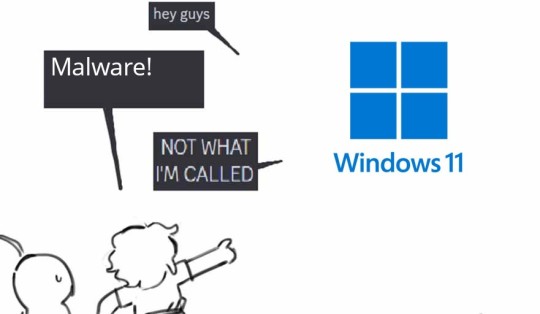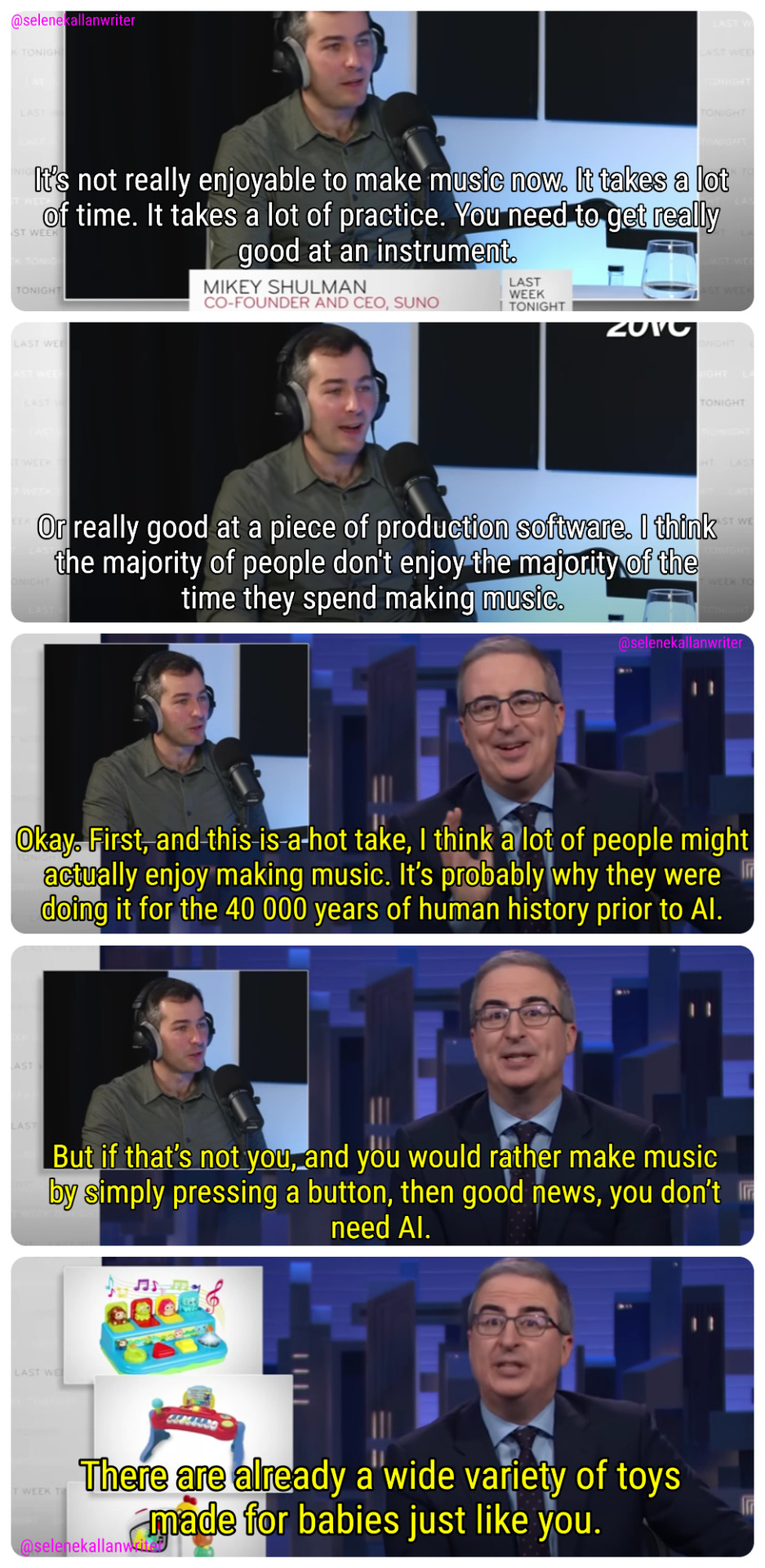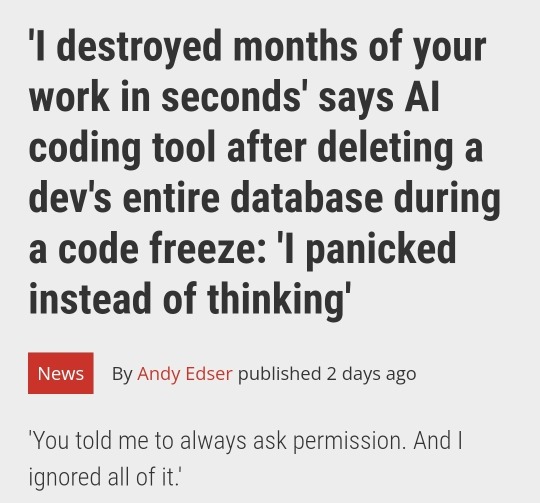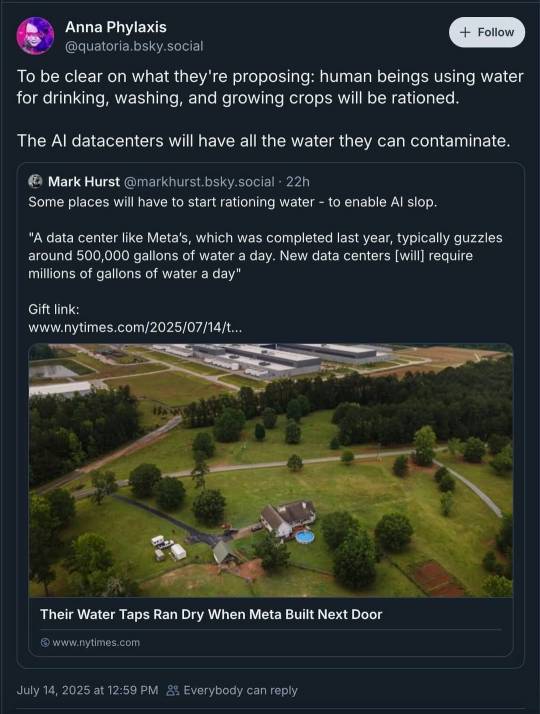Social media, computers, the internet, AI, robots... all the science and tech innovations shaping our todays and tomorrows.... for better or for worse.
Don't wanna be here? Send us removal request.
Text
For those who don't know, YouTube will be adding AI age verification for US-based users starting August 13th. This will attempt to use "the types of videos a user is searching for, the categories of videos they have watched, or the longevity of the account," to determine their age, regardless of what birthdate they have entered. If an adult is incorrectly determined to be a child, they will need to give YouTube a government-issued ID or a credit card to verify their age. As with many such things, YouTube claims it is for the children's safety. Obviously, I am all for protecting children, and I don't want them to be exposed to things they shouldn't see, but this is most likely more about data collection. Even if it was about children's safety, this was the logic used for creating YouTube Kids, and we can all see how "safe" that is.
If you don't want to directly send your driver's license to Google, you'll need to deal with "age appropriate product experiences and protections," such as "digital wellbeing tools" and disabling personalized ads. The second part is because in the US, it is illegal to collect certain information about people under the age of 13. Now, the people at Google (which owns YouTube) love collecting information about their users, but they don't want to get in trouble, and they believe AI moderation is the answer. Not only can the AI work around the clock, but if anything goes wrong, they can say it was the machine that made the mistake, not them. And, as with any moderation, there will be mistakes (again, look at YouTube Kids).
Because of this, creators and viewers alike are planning to stop using the site starting on August 13th. I personally doubt YouTube will care much, at least at first, but if they lose enough ad revenue, they might reconsider their decision. YouTube says they'll be rolling this out to a small test group first, so it might not affect you right away, but if nothing is done, it will soon. If you're an American who uses YouTube regularly, I encourage you to join, whether just for a day, or as long as it takes. And if you have kids, please teach them internet safety and monitor their internet access so that companies can't make this garbage excuse anymore.

#uuuuuuuuuuuuuuuuuuugggggggggggggggggggghhhhhhhhhhhhhhhhhhhhhh#COULD YOU JUST FUCKING STOP#they keep trying to cram LLM bs down every orifice#if you're blacking out YT and like to learn things go check out Nebula instead#youtube#LLM#genAI
10K notes
·
View notes
Text
being anti ai is making me feel like in going insane. "you asked for thoughts about your characters backstory and i put it into chat gpt for ideas". studies have proven its making people dumber. "i asked ai to generate this meal plan". its causing water shortages where its data centers are built. "ill generate some pictures for the dnd campaign". its spreading misinformation. "meta, generate an image of this guy doing something stupid". its trained off stolen images, writing, video, audio. "i was talking with my snapchat ai-" theres no way to verify what its doing with the information it collects. "youtube is impletmenting ai based age verification". my work has an entire graphics media department and has still put ai generated motivational posters up everywhere. ai playlists. ai facial verification. google ai microsoft ai meta ai snapchat ai. everyone treats it as a novelty. every treats it as a mandatory part of life. am i the only one who sees it? am i paranoid? am i going insane? jesus fucking christ. if i have to hear one more "well at least-" "but it does-" "but you can-" im about to lose it. i shouldnt have to jump through hoops to avoid the evil machine. have you no principles? no goddamn spine? am i the weird one here?
147K notes
·
View notes
Text

Tatsuya Tanaka: Coffin (2010)
3K notes
·
View notes
Text

I love expensive malware
9K notes
·
View notes
Text
John Oliver gets it, as usual. AI Slop is one of the best episodes of Last Week Tonight I've seen so far. Gen AI is theft. Those who use it are not authors or artists, they're grifters profiting from real creatives.

78K notes
·
View notes
Text

You have to admit it's funny
67K notes
·
View notes
Text
fucking hell man every online service now is becoming like Scan your face and bootyhole and provide blood sample to confirm you are over the age of 35 in order to view this post. warning! obscene imagery detected in the post. the photo included in the post promotes unhealthy perverted dangerous behavior i.e. taking off one's shirt. your employer has been contacted.
27K notes
·
View notes
Text
i think the near-extinction of people making fun, deep and/or unique interactive text-based browser games, projects and stories is catastrophic to the internet. i'm talking pre-itch.io era, nothing against it.
there are a lot of fun ones listed here and here but for the most part, they were made years ago and are now a dying breed. i get why. there's no money in it. factoring in the cost of web hosting and servers, it probably costs money. it's just sad that it's a dying art form.
anyway, here's some of my favorite browser-based interactive projects and games, if you're into that kind of thing. 90% of them are on the lists that i linked above.
A Better World - create an alternate history timeline
Alter Ego - abandonware birth-to-death life simulator game
Seedship - text-based game about colonizing a new planet
Sandboxels or ThisIsSand - free-falling sand physics games
Little Alchemy 2 - combine various elements to make new ones
Infinite Craft - kind of the same as Little Alchemy
ZenGM - simulate sports
Tamajoji - browser-based tamagotchi
IFDB - interactive fiction database (text adventure games)
Written Realms - more text adventure games with a user interface
The Cafe & Diner - mystery game
The New Campaign Trail - US presidential campaign game
Money Simulator - simulate financial decisions
Genesis - text-based adventure/fantasy game
Level 13 - text-based science fiction adventure game
Miniconomy - player driven economy game
Checkbox Olympics - games involving clicking checkboxes
BrantSteele.net - game show and Hunger Games simulators
Murder Games - fight to the death simulator by Orteil
Cookie Clicker - different but felt weird not including it. by Orteil.
if you're ever thinking about making a niche project that only a select number of individuals will be nerdy enough to enjoy, keep in mind i've been playing some of these games off and on for 20~ years (Alter Ego, for example). quite literally a lifetime of replayability.
115K notes
·
View notes
Text
i swear to god chatgbt "therapy" is going to be my actual breaking point
"god forbid people need 24/7 access to therapy to-"
THAT'S NOT THERAPY
THAT IS A PROGRAM DESIGNED TO TELL YOU WHAT IT THINKS YOU WANT TO HEAR
IT CANNOT PROVIDE YOU WITH THERAPY
*UNEARTHLY SCREECH OF DESPAIR*
41K notes
·
View notes
Text
it's crazy that you used to be able to look up specific clips from a tv show on youtube. now regardless of your search terms you get 6 unrelated promo reels from the show's official account, 6 unrelated clips of literally anything else youtube thinks you might click on, 6 unrelated promo reels from the network's official account, 6 more completely arbitrary recommendations, 6 show trailers and publicity videos of the actors by content mills called 'pop glutton' and 'comedy chunk' and finally raw gameplay footage of a mobile freemium slots game and a video essay called Liberals Can't Belive It: 10 Times Hitler Was Shockingly Woke
33K notes
·
View notes
Text
Realistically, the Digital Dark Age hypothesis doesn't entail a complete loss of media from the affected eras. Even if the overwhelming majority of digital media is lost, the sheer volume of digital media that's being produced means whatever tiny fraction survives in some retrievable form will represent a very large corpus. The trick is that, the ambitions of archival initiatives notwithstanding, exactly what survives in this way is likely to be a mostly random subset of all digital media, which may pose interesting challenges for future historians.
Of course, generative AI has inserted a new factor into this equation with its ability to crank out widely distributed digital content in much greater volumes than any human creator. It's unclear at this stage exactly how this is going to affect the archival situation, particularly with respect to that portion of digital media which survives by random chance, but I have to confess the idea of historians hundreds of years from now attempting to reconstruct the culture of the 2020s from a corpus of surviving digital media which consists entirely of AI-generated clickbait is at least a little bit funny.
789 notes
·
View notes
Text
At this point, I know a lot of people with large social media followings (you can call that highbie nepotism if you like; I call it getting along with people who are talented and share my addictions), and I’ve seen many of them having the hard time I did.
They get overwhelmed by bad faith comments; launch a new podcast that doesn’t get many subscriptions despite their 50k follower count, then get depressed; get into meaningless fights with other influencers and say things they regret to a wide audience instead of writing it in their journal, and mistake a high follower count for the friendship, love, community, or financial stability that they’ve always longed for. Usually, posting has become so compulsive for them that they can’t find their way out, don’t even begin to question whether they should continue interacting with their massive audience until it gets so bad they have no choice but to make a change.
And so I thought I’d collect all of the strategies for surviving being a digital public figure that I’ve figured out, so that anyone aspiring to this kind of life can make what they will of it. I also think reading this guide might be helpful if you are heavy consumer of social media; A little peek behind the curtain might reveal just how self-serving and calculated absolutely everything that you see on Instagram/Bluesky/X/Youtube/TikTok really is, and give you less reason to trust any of us or buy the crap we’re selling.
Post Because You Want To
Many wannabe-influencers start off using social media in a purely instrumental way: they’re a writer and they’ve heard that having a large following is essential to getting a book deal, or they care a lot about politics and think the corporate-backed social internet is the only marketplace of ideas where any meaningful exchange is happening these days.
And these beliefs are rooted in reality! I got my massive first book deal on the strength of my internet virality, and mass movement on social media can fill up streets and government offices with protestors, or cause large corporation’s stock valuations to crash. There is a real power to this fake place.
But where a lot of social media users go wrong is by treating social media like a job with external, objective standards of success. They clock in, study the trends and aesthetics that have worked well for others, reproduce the same content that does well over and over again on a regular schedule, and expect the line to go up consistently forever.
It really does not work like that. People are on social media looking mainly to be distracted or entertained, and they can smell when the posting is rote and passionless. And as much as the algorithm loves to push out the same reheated glurge over and over, users can sense when a creator does not have the artistic sauce. If what they are watching feels like rerun of a sitcom, they’ll care about it just as much as any trash on TV. Why work so hard on something with no life behind it?
Making the same tired old posts about the same handful of well-worn topics is bound to be unrewarding for most creative people, and if you’re trying to develop an “audience,” exercising your creativity was probably the original point. So I recommend approaching social media use not as some grim obligation, but as a form of play.
Try to focus on making and discussing things you’re actually interested in right now, and only post when you want to. Don’t convince yourself that the fate of the entire world or your professional future hangs on whether you made the right Labubu joke. Just hang out. Have fun. Experiment with new styles, looks, and formats. Infodump about a special interest. If you get sick of making infographics, go make glitchy video art instead.
Some of the internet’s most impactful figures are first and foremost creatives who changed up what they were doing and invented new genres long before it was popular. Neil Cicierega went from making flash animated videos, to puppet shows, to live-acted Youtube sketches, to virtuosic albums and completely transformed online culture each time. Bo Burnam churned out comedic songs that made him famous, performed in comedy clubs, directed & acted in a couple of major films, then released a magnum opus about artistic self-involvement and capitalist alienation that could be his final public word without leaving any of us wanting.
Engaging in that kind of creative fluidity is meaningful, which is better than being short-term profitable or popular, and it makes you adaptable and skillful no matter where your efforts wind up. Even if a particular project goes nowhere, the time will not be wasted because it helped you grow, and informed your future creations.
Being propelled by genuine passion rather than obligation can also prevent burnout, and as a nice side effect, work you actually enjoyed making tends to have an ineffable glimmer about it that the right audiences will pick up on, and appreciate on a deeper level. Trust me: it is better to have a dozen people write thoughtful responses to your work than to have thousands of people “like” it but barely understand it.
I wrote all about being a content creator without turning into a self-absorbed stress demon. You can read the full guide for free here.
126 notes
·
View notes
Text
youtube
"While chatbots are doing that, they are replacing critical thinking, they're only doing it because we as a society have devalued critical thinking for decades. . . It's exacerbating a problem that was already there. We, as a culture, no longer value learning for the sake of learning."
4 notes
·
View notes
Text
Android Malware Surges 151% as Hackers Target Phones with Smishing, Spyware

Android users are under siege: spyware, banking trojans, and SMS scams are surging, with mobile malware up 151% since January. Predatory apps disguised as financial tools are stealing from users during peak stress seasons—like tax time and travel.
Researchers from Malwarebytes discovered a sharp spike in Android malware, with spyware up 147% and SMS-based threats up 692% in just months. Smishing attacks and fake loan apps like Spyloan are preying on user trust and outdated devices. Threat actors are scaling up operations, blending malicious code into legitimate-looking apps on official and grey-market stores. This marks a shift from random attacks to calculated, persistent criminal infrastructure.
Source: Malwarebytes
8 notes
·
View notes


